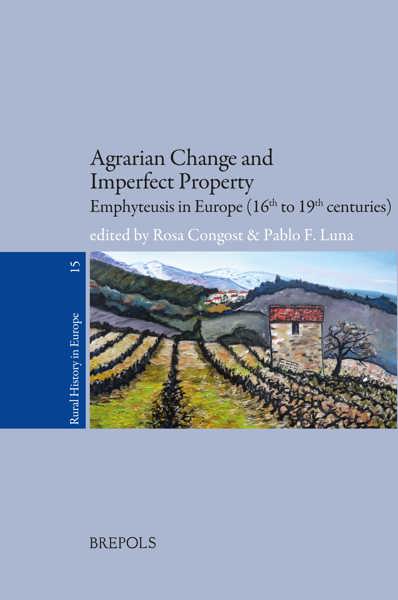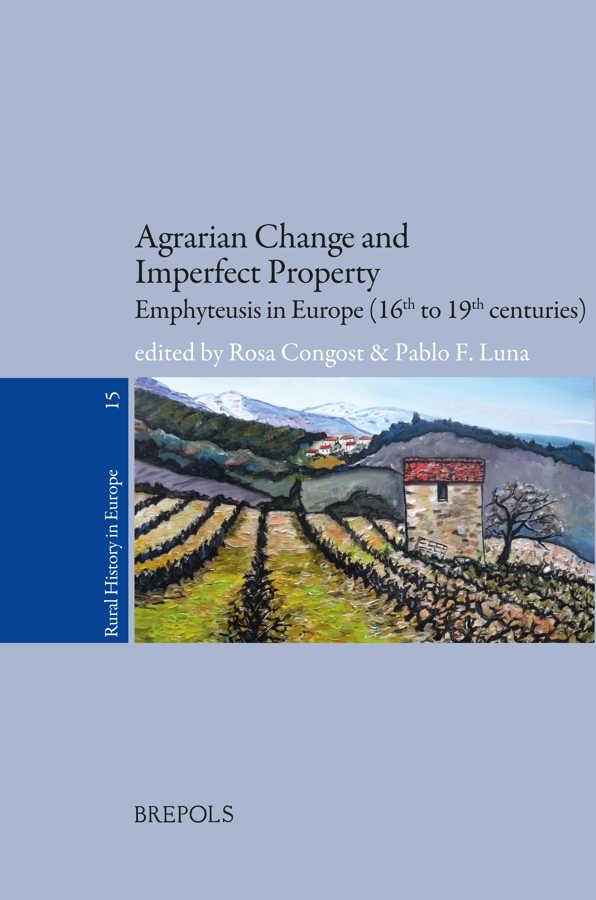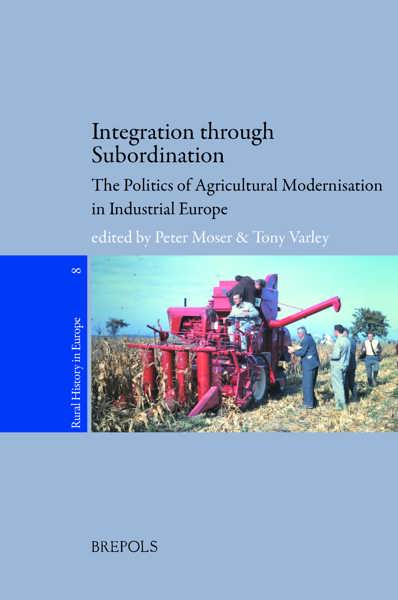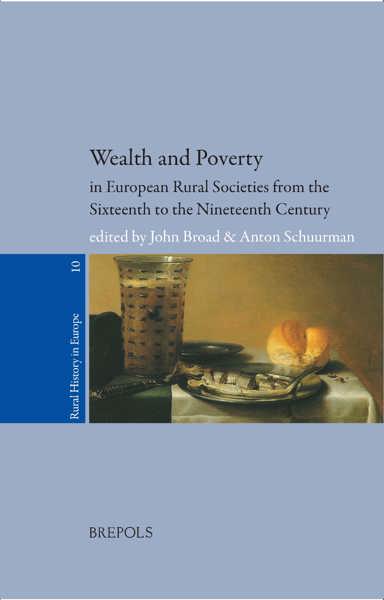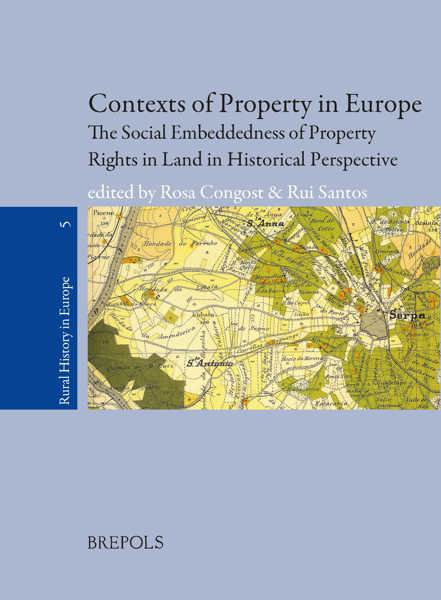
Agrarian Change and Imperfect Property
Emphyteusis in Europe (16th to 19th centuries)
Rosa Congost, Pablo F. Luna (eds)
- Pages: 311 p.
- Size:156 x 234 mm
- Language(s):English
- Publication Year:2018
- € 80,00 EXCL. VAT RETAIL PRICE
- ISBN: 978-2-503-57923-8
- Paperback
- Available
- € 80,00 EXCL. VAT RETAIL PRICE
- ISBN: 978-2-503-57924-5
- E-book
- Available
“The chapters generally touch on important themes, such as the development of private property rights or how contracts interacted with changes in land use, or interesting periods, such as liberal reform efforts in the mid-nineteenth century, that may be of interest for general readers.” (Kara Dimitruk, in EH.NET, July 2019)
“The volume will be a useful research resource for agricultural historians seeking to extend their knowledge of land transactions.” (Catherine Casson, in Agricultural History Review, 67/II, 2019, p. 327)
Rosa Congost is ICREA Academy researcher at the Centre de Recerca d’Història Rural and teaches at Facultat de Lletres in Universitat de Girona. Her research interests cover the history of landed property and agrarian social relations.
Pablo F. Luna is senior researcher at the Centre des recherches historiques (EHESS/CNRS, CRH, UMR 8558) and teaches at Paris Sorbonne. His research interests focus on rural history of Spain and Spanish America, 17th-19th centuries.
This book is situated at the crossroads of two recurring themes in rural history: agrarian contracts and property rights. Emphyteusis is at the heart of agrarian history in that it brings together agricultural history and the nature of social relations in traditional societies. Despite this, many such contracts have been blithely ignored, or unjustly dismissed, either because they are hard to identify, given the many variants that existed, or because, as a form of divided property, they are generally perceived in a negative light.
Nevertheless, emphyteusis is to be found everywhere, even in regions which deny its existence, and it is far from being obsolete. Rather, it is flourishing, prospering and long-lived, particularly in urban areas. Emphyteusis has a long history and has played a central role, sometimes misleading, but always crucial, in the process of agricultural development. It has held sway as a substitute when access to property has been impossible, and as a source of conflicts has often revealed the nature of power relations between property owners on the one hand, whether seigneurial or not, and cultivators, short-term and long-term tenants on the other. The different chapters in this volume illuminate these multiple facets and forms of this type of contract and imperfect property rights. Though the focus is on Mediterranean societies, the questions raised have relevance far beyond this specific area.
1. Emphyteusis: A Practical Question?
Gérard Béaur, Rosa Congost, Pablo F. Luna
2. Some Points on Emphyteusis in Central-Northern Italy between the End of the Middle Ages and the Early Modern Age
Giorgio Chittolini
3. What the Dominia Could Do : Enfiteusi and Other Forms of Divided Property Rights in Lombardy from the Fourteenth to the Twentieth Centuries
Michela Barbot
4. The Many Faces of Emphyteusis in France: An Overview, with a Case Study from the Meaux Region (1600-1800)
Gérard Béaur
5. Erblehn and Hoflehn in Germanic Lands : Disguised Forms of Ownership? The Alsatian Countryside in the Seventeenth and Eighteenth Centuries
Jean-Michel Boehler
6. Emphyteusis in Practice in Eighteenth-Century Normandy : Why Choose the Fieffe?
Fabrice Boudjaaba
7. More than just Access to Land : Emphyteusis and the Redefinition of Property Rights in North-East Catalonia (Eighteenth and Nineteenth Centuries)
Rosa Congost, Pere Gifre, Enric Saguer
8. The Origins and Evolution of the Rabassa Morta Contract in Catalonia. Was It an Emphyteusis?
Llorenç Ferrer-Alòs, Belén Moreno Claverías
9. From ‘Feudal’ to ‘Common’ Emphyteusis in Rural Mallorca , Eighteenth to Twentieth Centuries
Antònia Morey Tous, Gabriel Jover Avellà
10. Foros : Land Tenure as a Source of Income and Conflict in Early-Modern Galicia
Pegerto Saavedra
11. From Foro to Renting (and back?) . Emphyteutic Tenure at the Asturian Monastery of San Pelayo during the Old Regime
Pablo F. Luna
12. The Colonia Contract: Ambiguity between Sharecropping, Fixed Rent and Emphyteusis
Benedita Camara
13. Emphyteotic Practices and Relations of Power : An Approach of Social Conflicts in the Greek Archipelago, 17th-18th Centuries
Eleftheria Zei
14. Agrarian Practices and their Social and Ideological Ramifications in the Ionian Islands during the Venetian Domination
Efi Argyrou, Sevasti Lazari
